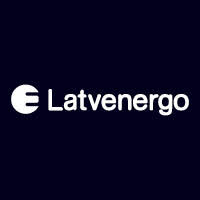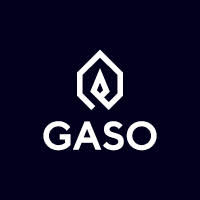About the conference
Latvia’s energy security, stability, and sustainability are undoubtedly the responsibility of the entire state. The balance of this trilemma, as defined by the World Energy Council, is a crucial foundation for the sustainable development of the industry, including energy independence. The Latvian Ministry of Climate and Energy is currently actively engaged in preparing a new National Energy and Climate Plan (NECP) project. It is anticipated that in order to achieve the climate goals set by 2030, changes need to occur more rapidly, especially in sectors with high CO2 emission intensity.
To accelerate the pace of change, diversification of the energy resources and the energy production portfolio is essential, while adhering to EU directives on the use of energy resources. Looking beyond 2030, this could also mean certain limitations for Latvia in terms of local energy resource extraction and utilization in heat energy production. Currently, Latvia has taken a certain course in harnessing solar and wind energy, and there is active involvement from entrepreneurs and households in energy production for self-consumption. Simultaneously, solutions are being sought for challenges related to the supply of new technologies, supply stability and security, as well as energy storage, which could become a priority with the rapid development of wind parks.
The next most important step is the disconnection of Latvia’s electricity system from the BRELL circle and joining the networks of continental Europe. Are we ready for this transition and how does it affect electricity consumers in Latvia?
The annual conference “ENERGY 2024 – economic growth-oriented energy production in Latvia” organized by publishing house “Dienas Bizness” and industry leaders, this year aims to find a balance between the state’s defined priorities for the industry’s future development, the responsibility of energy producers, the opportunities of energy-efficient companies, and public interests.
It is clear that the period leading up to 2030 will be challenging, and it is already known that Latvia will not be able to achieve certain targets. Despite this, the conference will seek answers to the following questions, taking 2030 as a reference point:
- What should society aim for – what should be considered the norm in the energy sector?
- What are the main benefits and challenges for the country in promoting sustainable energy production for self-consumption among the population?
- What risks and challenges do industrial producers face in the energy sector, and what are the possible solutions?
- How does self-consumption energy production affect the competitiveness of industrial producers, and what are the main reasons for choosing this option – survival, increasing competitiveness, or demand?
- Is there a need for Latvia to hurry with the electrification of industries?
Conference date: 27th of March, 2024, 10:00 – 17:00
Conference venue: ATTA conference centre (Krasta street 60, Riga)
Working language: Latvian and English (synchronous translation will be provided)
The conference invites the participation of municipalities, responsible state institutions and policymakers, energy producers and suppliers, representatives of energy-efficient companies and industrial producers, building managers and real estate developers, representatives of financial and development institutions, and investors.
Objective: To find a balance between the state’s defined priorities for the industry’s future development, the responsibility of energy producers, the opportunities of energy-efficient companies, and public interests in the period leading up to 2030.
PARTICIPATION on site or online:
For one person: EUR 280 + VAT
Participation with 15% discount for “Latvenergo”, “Gaso”, “Sadales tīkls”, “ABB” and “Augstsprieguma tīkls” legal clients and partners: EUR 238 + PVN
Participation with 30% discount for journal “Dienas Bizness” annual subscribers: EUR 196 + PVN*
* Click HERE to subscribe and receive discount right away!
More about the event:
Santa Butāne
+ 371 26132470 | Santa.Butane@db.lv
Agenda
09:00 – 10:00 Registration and coffee
10:00 – 10:05 Preface
Moderator Ph.D. Mikus Dubickis, Associate professor at Riga Technical University
10:05 – 10:15 Opening speech
Kaspars Melnis, Latvian Minister of Climate and Energy
10:15 – 10:45 Discussion: Energy future based on the interests of the Latvian state and society
Participants:
- Kaspars Melnis, Latvian Minister of Climate and Energy
- Olga Bogdanova, LU associate professor, President of the Latvian National Committee of the World Energy Council
- Andris Piebalgs, Professor at the Florence School of Regulation
- Juris Ozoliņš, Energy industry expert
Latvia’s Energy Resource Portfolio 2030+
The strategic view on the sustainable and economically sound development of the industry
10:45 – 11:00 Self-sufficiency as a guarantor of future security
Mārtiņš Čakste, Chief Executive Officer and Chairman of the Board of AS “Latvenergo”
11:00 – 11:15 Topic to be determined
Anders Bjordal, Chief Trader LNG, MMP GAS & Power, Equinor ASA
11:15 – 11:30 Potential wind farm development areas on the lands of national forest
Valdis Kalns, Member of the Board of AS “Latvijas Valsts meži”
11:30 – 11:45 The future of gas infrastructure – supply security and low emissions
Aivars Tihane, Member of the Board of AS “Gaso”
11:45 – 12:15 Discussion: The state support system and its impact on the competitiveness and further development of manufacturing companies
Participants:
- Jānis Urtāns, Member of the Board of SIA “Latvijas vēja parki”
- Uldis Biķis, Chairman of the Supervisory Board of AS “Latvijas Finieris”
- Laura Štrovalde, Deputy Director General in charge of investment and energy at Investment and Development Agency of Latvia (LIAA)
- Māris Gruzniņš, Member of the Board of SIA “SCHWENK Latvija”
12:15 – 13:00 Coffee break
Electrification and energy efficiency
Challenges and opportunities of technological development of industrial manufacturers
13:00 – 13:15 Cultivating cost savings through strategic component selection within electric propulsion systems
Ņikita Petrovs, Electric Motion Business Manager at ABB Latvia
13:15 – 13:30 Increasing the energy efficiency of a heat network pump
Aleksandrs Andrejevs, Senior Electrical Engineer of Electrical service at AS “Rīgas Siltums”
13:30 – 13:45 ABB’s portfolio of electrification digital solutions. Best practices
Agris Veliks, Electrification Business Manager at ABB
13:45 – 14:00 Leaders towards a carbon-neutral industry. The success story of ABB’s Porvoo factory in Finland
Mikko Alajoki, Global product management at ABB
14:00 – 14:30 Discussion: Electrification of sectors – ambitions, real possibilities and the situation today. Does Latvia need to hurry up with the electrification of industries and why?
Participants:
- Ina Bērziņa-Veita, Member of the Board at SIA “Salaspils Siltums”, President of the Latvian Association of Heating
- Uldis Mucinieks, Sales Director at AS “Latvenergo”
- Ivars Zariņš, Executive Director of the Latvian Association of Electrical Engineers and Energy Builders
- Alnis Bāliņš, Head of The Riga Office of “European Energy Latvia”
14:30 – 15:30 Lunch break
Energy security and stability
Priorities and challenges in energy infrastructure development
15:30 – 15:45 Development of the balancing capacity market
Gatis Junghāns, Member of the Board of AS “Augstsprieguma tīkls”
15:45 – 16:00 Balance of production and consumption capacities: challenges and solutions for further development of the industry
Sandis Jansons, Chairman of the Board of AS “Sadales tīkls”
16:00 – 16:15 Nordic-Baltic Hydrogen Corridor Project
Uldis Bariss, Chairman of the Board of AS “Conexus Baltic Grid”
16:15 – 16:30 How to capitalize on the potential within the advancement of energy infrastructure? Latvia’s potential within the Nordic and European contexts
Kornel Balogh, Account Executive at “Volue” ASA
16:30 – 17:00 Discussion: The role of future energy – to earn, to supply or to invest?
Participants:
- Rolands Irklis, Chairman of the Board of AS “Augstsprieguma tīkls”
- Sandis Jansons, Chairman of the Board of AS “Sadales tīkls”
- Uldis Bariss, Chairman of the Board of AS “Conexus Baltic Grid”
- Kornel Balogh, Account Executive at “Volue” ASA
17:00 Conclusion of the conference





